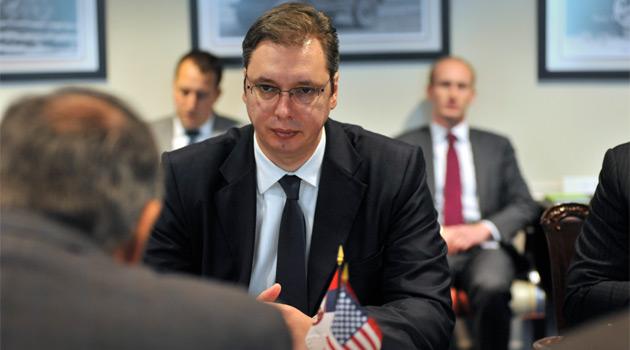OSCE Mission to Serbia responds to Romani NGOs about alleged radicalization, references British Council report
On 20 July 2018 the OSCE Mission to Serbia responded to the letter sent by the international Roma Nation Movement regarding allegations of radicalization among Romani community members in Serbia. The letter expressed concern that a recent consultancy post had been advertised in such a way as to stigmatize the Roma.
“We share your perspective that it is critical that the Roma community not be further stigmatized and marginalized, in Serbia or elsewhere, and believe that this research will help us in that endeavor,” reads the response from the OSCE Mission to Serbia. “We appreciate your concern with some of the language used in the vacancy notice, which will help us shape our messages on such sensitive topics with even more precision in the future.”
The mission says it decided to hire a researcher after the British Council published a report on extremism this spring that features a section on “Roma radicalization.” It is envisioned that local experts would be hired to provide what the mission called “context and more primary data”.
The British Council report opens by emphasizing that violent extremism is “not a grave problem” in Serbia. The report lists one female and three male members of two Roma associations as being among the respondents and includes an Annex that identifies by name persons whom the media has reported as fighting in either Syria or Ukraine, including some identified as Romani.
Victimization of Romani people by other extremists in Serbia is also mentioned in the British Council report. It briefly summarizes the different possible cultural, political and socioeconomic “drivers” of violent extremism, which can be influenced by rejection of both global and regional politics, horizontal inequalities, injustice, weak state capacity to address violence, and even the normalization of violence in popular entertainment.
The British Council report says recent research shows 77 % of youth in Serbia believe they have no influence in decision-making and 83 % do not believe political parties work in their interests. Nostalgia for the “good old days” of full employment is also said to be transferred to youth by older generations.
With respect to radicalization of Muslims, the British Council report asserts that a large number of young people from Sandžak especially study abroad at Islamic universities in Saudi Arabia and Turkey where they allegedly “become more religious then they were before” with greater potential for radicalization, according to respondents. The report then alleges that radicalization of Romani communities is apparent on the outskirts of Belgrade, Novi Sad and Smederovo.
The British Council report claims to have interviewed Romani respondents who allege that several dozen Muslim Roma in their neighborhoods are Salafis. Serbian media have also reported that 11 Romani people from Serbia have traveled to Iraq and Syria with their families.
One respondent also alleged that Romani Salafis had committed violence against other community members over personal disputes that was of such a level as to intimidate the victims into moving away. The report alleges that a “very active Salafi community” is present in Zemun Polje, where authorities demolished a mezhdit last year, ostensibly for being built without permits, and reportedly while leaving an equally-unauthorized Orthodox Church in place 300 meters away, an incident that was raised with the Serbian authorities by the UN Special Rapporteurs on freedom of religion and minorities, respectively.
